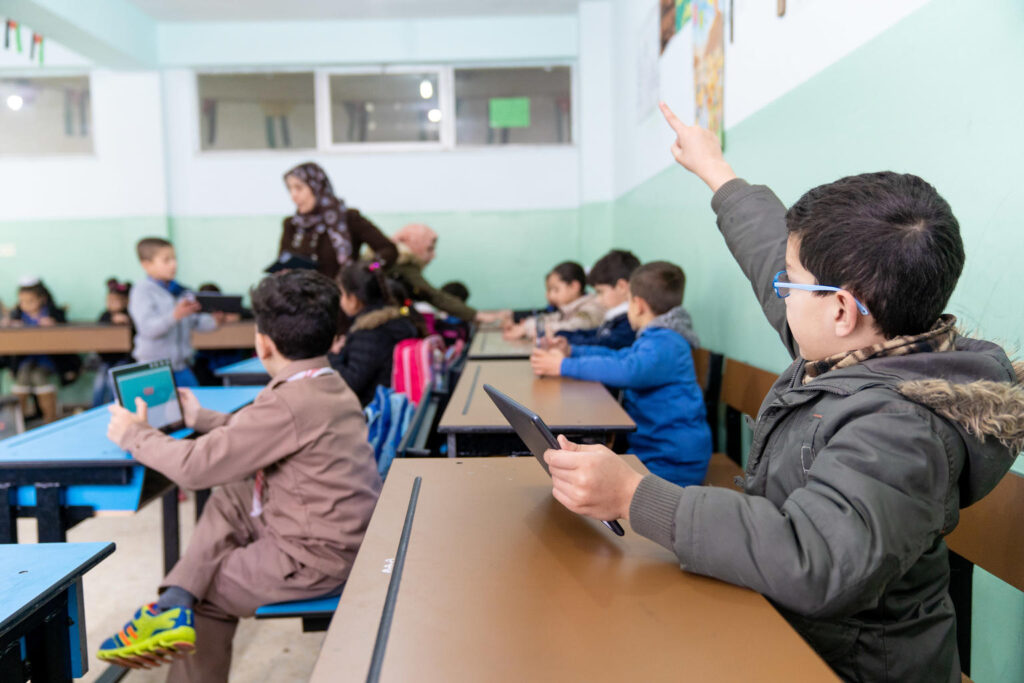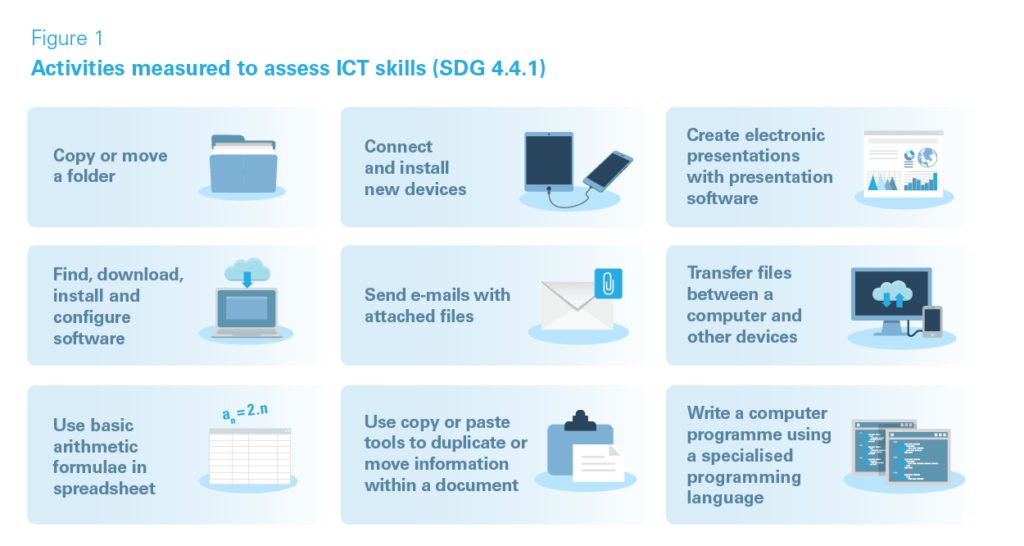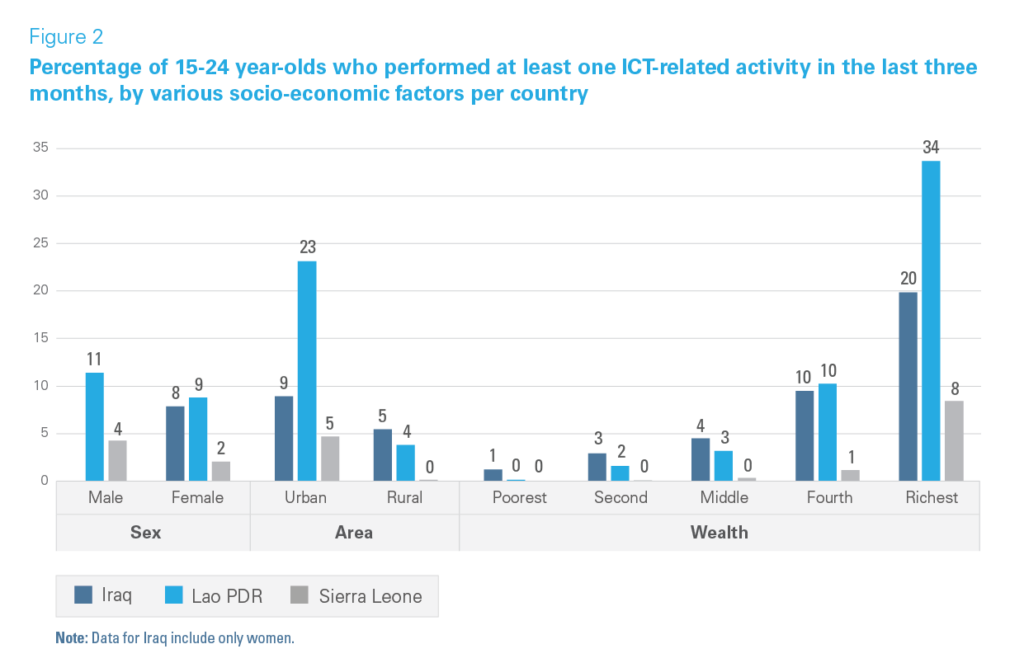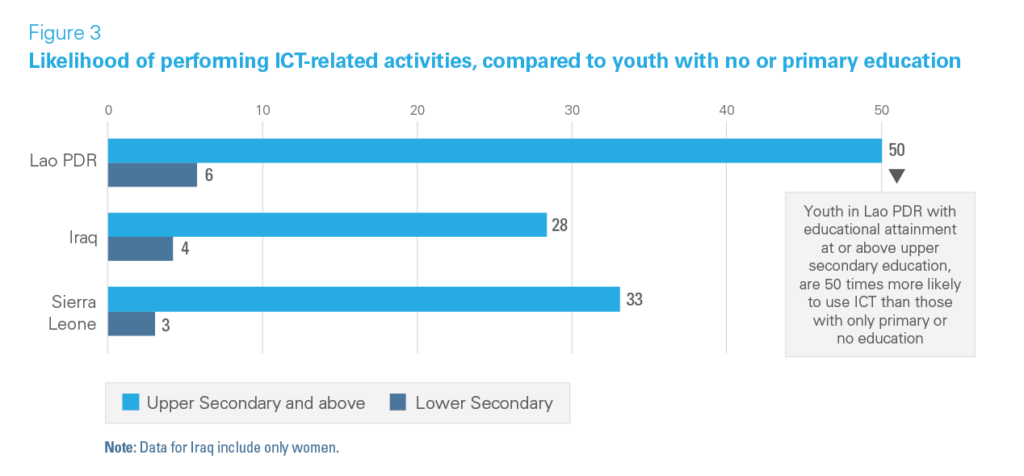Information and communication technology (ICT) touches virtually every aspect of modern life – from everyday tasks such as sending out emails and making phone calls to using programming languages in the workplace. It is a driver of change in the global economy, creating opportunities for innovation, new products and entrepreneurship. ICT, and the digital economy it has created, is here to stay. For today’s youth, therefore, ICT knowledge is vital for success, determining their ability to participate in society as well as contributing to their employability.
National governments need to ensure that education systems prepare all young people for life and for work by equipping them with the skills needed to succeed in life. Schools are essential to achieving this, as they are delivery points at which students acquire foundational skills, namely numeracy and literacy skills. Foundational learning provides the basis for further acquisition of knowledge and skills and is necessary for young people to attain proficiency in ICT skills. Moreover, it is of the utmost importance for countries to ensure that no child or youth is left behind when it comes to learning the skills necessary to avoid digital divides based on prevailing socioeconomic differences.
Measuring ICT skills in youth
Digital skills are those that allow children and adolescents to become ‘digitally literate,’ able to not only use and understand technology, but also to increasingly create and share digital content, building knowledge and solving problems and using digital technology. ICT skills are those digital skills that focus on activities related to information and communication technology.
In order to enable governments to measure the use of ICT skills within their populations, UNICEF introduced a Mass Media and ICT module as part of the latest round of Multiple Indicator Cluster Surveys (MICS6). The new module collects data for men and women aged 15–49 years on access and frequency of use of Internet, computers and mobile phones. Moreover, to assess the prevalence of ICT skills, the module collects information on the recent use of ICT skills by measuring certain activities.[1] The ICT-related activities range from less complex to more complex tasks, providing insights into ICT proficiency in participating country.
Findings from Sierra Leone, Lao PDR and Iraq
So far among the MICS6-participating countries, Sierra Leone, Lao PDR and Iraq have released their data, which reveal low overall ICT penetration for young people. Prevalence of ICT skills also varies widely across location and wealth. In all three countries, ICT skills are concentrated among youth from the richest quintile and those in urban areas, whereas almost no youth from the lowest income quintile use any ICT skill. In Lao PDR, for example, 34 per cent of young people in the top wealth quintile reported using ICT skills compared to less than four per cent from the bottom 60 per cent.
Source: MICS6 data for Iraq, Lao PDR and Sierra Leone
Findings across the three countries also demonstrate the strong link between education attainment and ICT use – education beyond the lower secondary level being the strongest predictor of ICT use. This means that regardless of socioeconomic and demographic variables – such as wealth, location, age and gender – higher levels of education are associated with increased likelihood of using ICT skills. Although digital skills are not as present in school curriculum as they should be, it is important to note that educational attainment leads to higher proficiency in foundational skills. Individuals who have acquired basic and transferable skills are able to understand and acquire more complex competencies and knowledge, including ICT skills. Additionally, more educated youth will more often have the chance to work in jobs that help develop digital skills.
Source: MICS6
Ensuring all youth have ICT skills
The results indicate that while more educated youth are making progress towards learning ICT skills, more needs to be done in curriculum and teaching practices in the education systems to close the digital divide. The data provide important insights for national education systems to prepare children and youth for a changing labour force and to support them in achieving their full potential. Currently young people with an upper secondary education in the three countries analysed are between 28 and 50 times more likely to use ICT skills than their peers with no education or education only up to primary level. This type of evidence makes a strong case for improving access to upper secondary education, as youth with high education are more skilled and more likely to use ICT in their personal and professional lives.
This is the fourth blog post in a series about newly released data on education:
- Early grade learning: How much children learn? New Evidence from Sierra Leone
- Early Childhood Education: Better ways to measure and promote early education: Lessons from Lao PDR
- Disability and Education: Do children with disabilities attend school? New findings from Sierra Leone
[1] As the module measures only the use of ICT skills, and not proficiency in ICT skills, individuals who are proficient in a given ICT skill but have not used it recently are considered as not having that skill.






